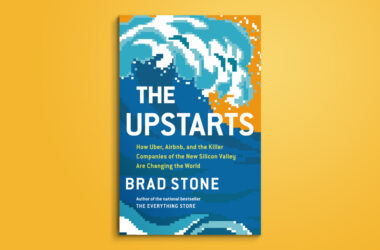Leader humility is a tendency to feel and display a deep regard for others’ dignity.
This definition of “leader humility” shows up in first chapter of The Extraordinary Power of Leader Humility: Thriving Organizations — Great Results. It’s a powerful definition of what it means to be humble as a leader, while simultaneously clarifying that humility isn’t just the opposite of confidence, or synonymous with meekness and deference.
The book has been on my reading list for a while. As someone who thinks a lot about how to empower others as a leader and balancing grace with authority1, this threads the needle just right. The definition itself is humble—it emphasizes the empathy and treatment of others as the primary determinant of humility, while avoiding focus on the appearance or perception of others onto the self.
Unfortunately, that’s about the extent of the utility I got from The Extraordinary Power of Leader Humility. The author interviewed a dozen or so CEOs for this book, and tries to use their experiences to showcase how their humble behavior has enabled business success. The problem is that instead of being inspirational and biographical, it reads more like an executive branding exercise; the simple stories relayed and the lessons learned are short and shallow, and they are quoted early and often throughout. The author does not question the claims or take a critical eye, accepting their versions of the story as the singular truth—modern capitalist fables prepared for the masses hungry for self-improvement.
The book dedicates a full chapter to letting one of its CEO interviewees pitch their management system, citing how its application helped turn around their car manufacturing company during the ’08 financial crisis. It then devotes another chapter listing each CEO’s biography and passage of humble wisdom. And when it’s not masquerading as a collection of executive biographies, the author cites favorable events that highlight CEO humility without any nuance. Examples include Starbucks closing their stores back in 2018 for racial sensitivity training after a race-related incident, and Gravity Payments raising the annual salary of all its employees to a minimum of $70k in 2015, by cutting back on the CEO’s own compensation.
These inclusions are presented unequivocally as CEOs leading by being humble and “doing the right thing,” yet read like press releases. Even when presented from the author in a more journalistic perspective, the narratives still lack full context, less investigatory and more puff piece. The charitable interpretation is that the author didn’t want to distract from the central point—that of leaders showcasing courage and humility. But, they’re presented so uncritically and unequivocally good that they come off as humblebrags, cultivating and adding to the mythology of the leader.
Other parts of the book are better, but comes off like a series of LinkedIn clickbait posts. For instance, the book goes into why diversity in the workplace is a good thing, using the well-understood argument that more diverse perspectives tends to generate better business outcomes. They also have an annoying habit of emphasizing “millennials”: this up-and-coming workforce with its own special needs and expectations that leaders should approach with kid gloves. These aren’t bad trends to encourage per se, but the framing and almost inspirational-blog-fodder cheapens the more thoughtful points made elsewhere in the book, particularly around that theme up top on valuing others’ dignity. It makes me question who the intended audience is—it seems like the ideal reader is a Fortune 500 exec, some old white guy who needs to evolve beyond their old-school style of command-and-control management2.
A friend of mine once told me that they didn’t like reading business books—not because they didn’t have good ideas, but because the core concepts are typically simple and the rest of the prose is just padding. With The Extraordinary Power of Leader Humility, he’d be completely justified in that judgement. If each book has a reading time : valuable learnings ratio, this one would hit its maximum in the first 2 pages3.
That said, I dislike the term “servant leadership” as it’s too easy to use it as a self-descriptive placation.↩
The author even got around to predicting that excessive arrogance and micromanagement can lead to—gasp!—toxic cultures.↩
Though I will acknowledge the hypocrisy in spending 700+ words writing this review.↩




